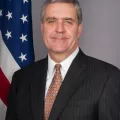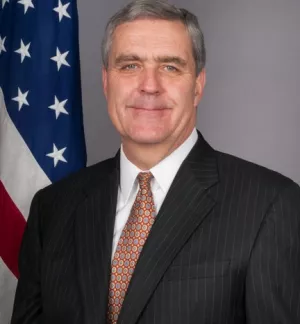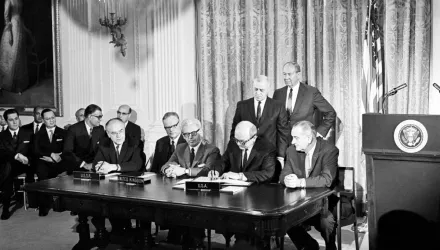House Committee on Foreign Affairs
March 13, 2019
Mr. Chairman, members of the committee, thank you for bringing us together to discuss the NATO alliance, a cornerstone of American national security for the past 70 years that we too often take for granted.
The topic of today’s session is “NATO at 70: An Indispensable Alliance.” Just last month Harvard University’s Belfer Center published a report I co-authored with Ambassador Nicholas Burns entitled “NATO at 70: An Alliance in Crisis.” As NATO approaches its 70th anniversary in a few weeks, both descriptions are true: NATO is both indispensable and in crisis.
Our report outlines 10 major challenges facing the Alliance. These challenges are diverse, complex and simultaneous – that’s why we conclude the Alliance is in crisis. Four challenges come from within NATO:
- Reviving American leadership of the Alliance
- Restoring European defense strength
- Upholding NATO’s democratic values
- Streamlining NATO decision-making
Another four challenges come from beyond NATO’s borders:
- Containing Putin’s Russia
- Ending the Afghan war
- Refocusing NATO’s partnerships
- Maintaining an open door to future members
Finally, two additional challenges loom on the horizon:
- Winning the technology battle in the digital age
- Competing with China
I would like to highlight a few points from the report and request that the full report be entered into the record. (https://www.belfercenter.org/publication/nato-seventy-alliance-crisis)
First, NATO’s single greatest challenge is -- for the first time in NATO’s history -- the absence of strong, committed US presidential leadership. Every previous president since 1949, both Democrats and Republicans, has understood the value of NATO. Most fundamentally, Allies today are unsure of our president’s commitment to the Article 5 collective defense commitment. This shakes the core of the Alliance. Here the United States Congress can play a role to reassure allies and check and balance the president, as the House did in January this year by approving the NATO Support Act. More specifically, on a bipartisan basis, Congress should reaffirm regularly the U.S. commitment to NATO, continue to fund the European Defense Initiative, and pass legislation requiring Congressional approval should the president attempt to alter our treaty commitments or to leave the alliance altogether. Approval of the NATO treaty in 1949 required two-thirds majority in the Senate; the same should be required to leave the Alliance.
Second, Europeans must contribute more to their own defense. I was the US ambassador to NATO in 2014 when allies committed to the 2% pledge – it is an appropriate and necessary metric. Today only five allies reach that level of defense spending. This Administration is right to hold allies to the pledge. At the same time, however, 2% was never intended to be the only meaningful measure of an ally’s contribution, so NATO should broaden its metrics. Most important, spending on capabilities to counter “hybrid tactics” like cyber attacks, disinformation campaigns and interference in our democratic processes should be taken into account, as these represent NATO’s greatest vulnerability.
Third, a challenge on the horizon: NATO needs to pay attention to China’s increasing influence in Europe. China’s commercial investments in Europe today, especially in transportation and communications infrastructure, will lead to political influence tomorrow. The US-Chinese competition will define coming decades. The United States will be best positioned for that competition with a strong NATO alliance, 29 (soon 30) democracies that are nearly 50% of the world’s GDP.
Finally, Mr. Chairman, I want to point out a false narrative that ignores the value and erodes the cohesion of NATO. This false narrative claims that NATO is an anachronism, outdated and obsolete; that our allies are ripping us off, taking advantage of our generosity; that past presidents have been naïve and overly generous. This is simply not true. The truth is that the United States created NATO and has maintained the alliance for 70 years because NATO is in America’s vital national security interest. America benefits economically, politically and militarily from the Alliance. NATO and our other treaty allies are the single greatest geo-strategic advantage we hold over any potential peer competitor. Russia and China have nothing to compare. This simple truth is why NATO is worth leading, worth sustaining, and worth improving as it faces a daunting array of challenges. In short, NATO is indispensable.
Thank you.
Lute, Douglas. “NATO at 70: An Indispensable Alliance.” March 13, 2019




